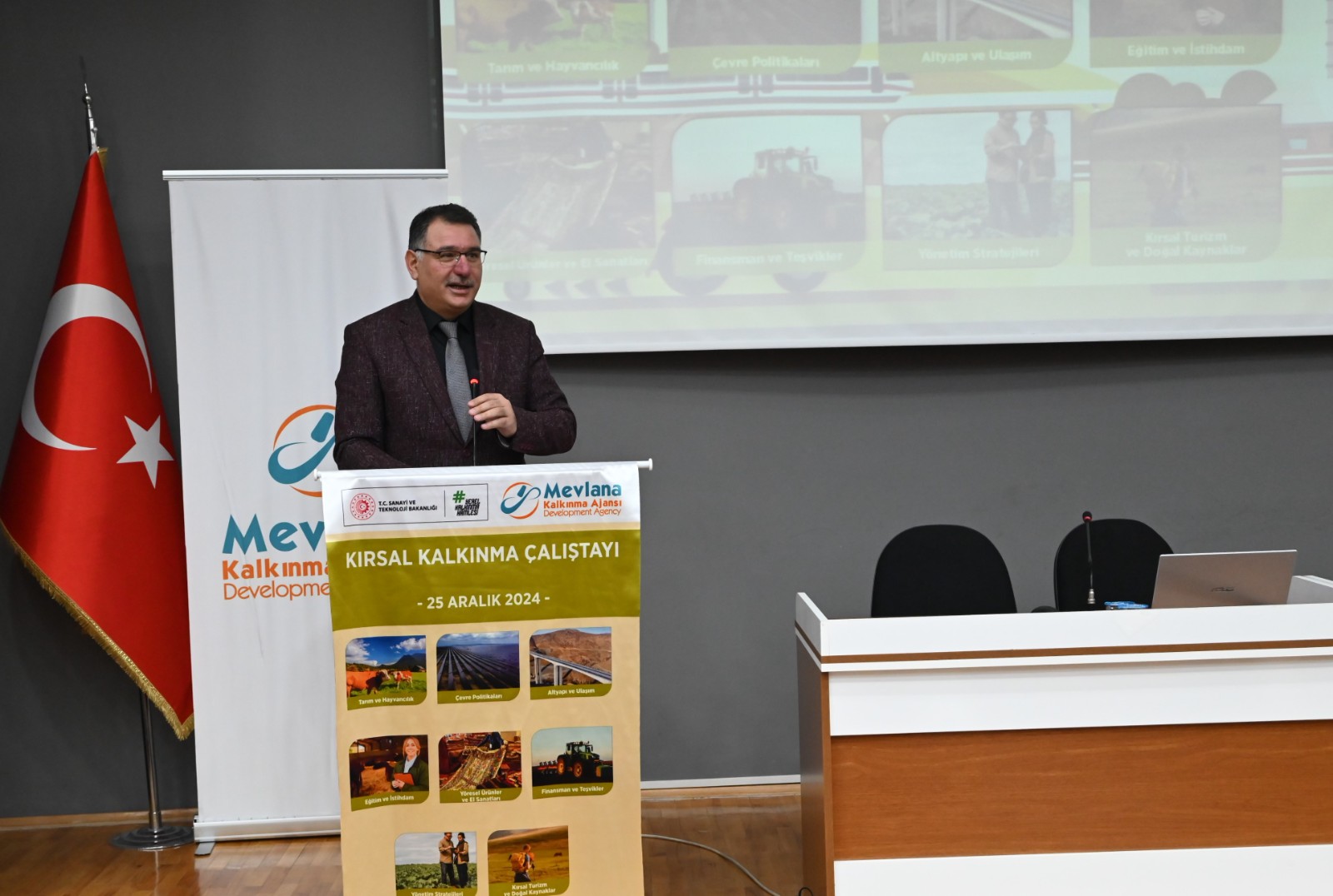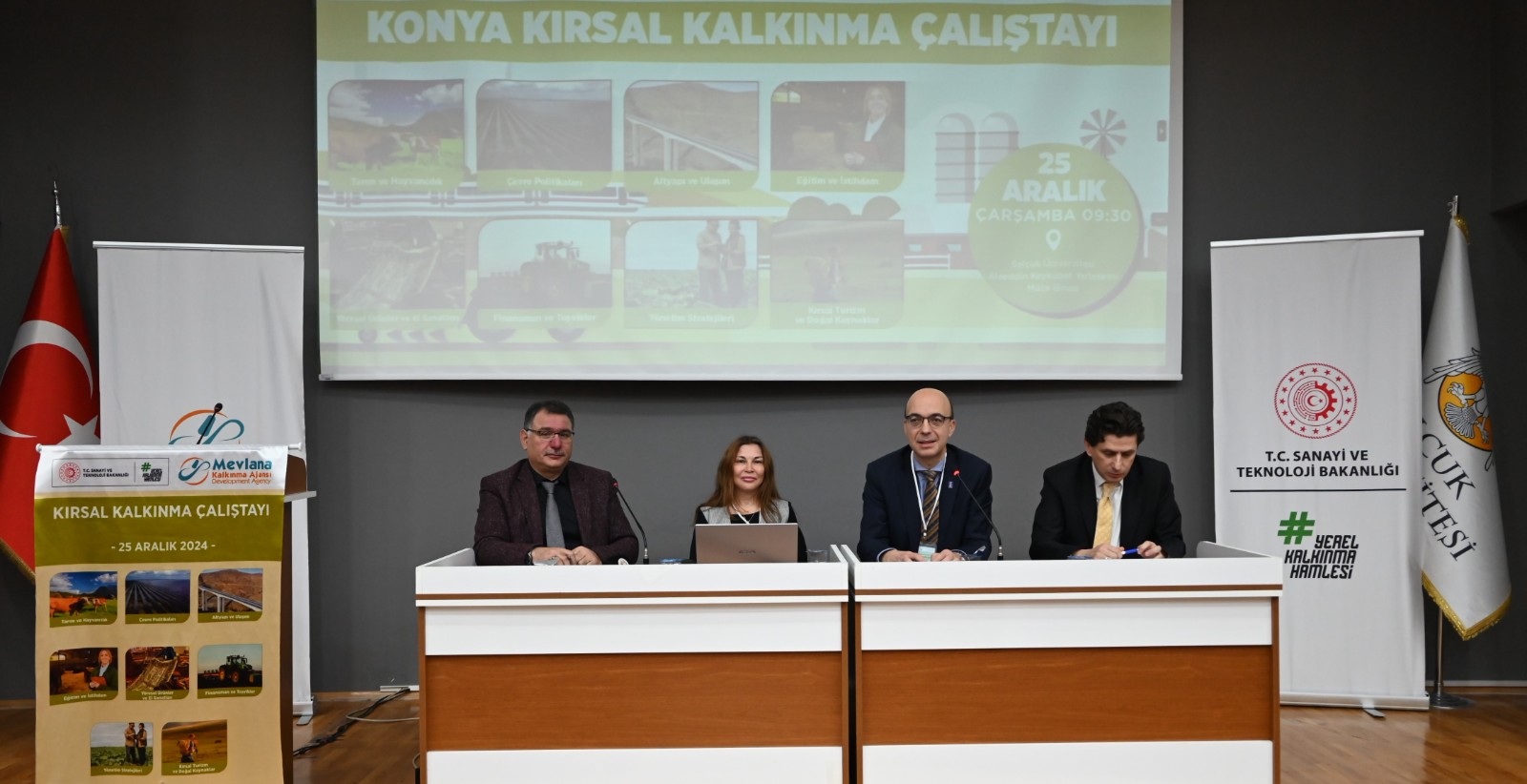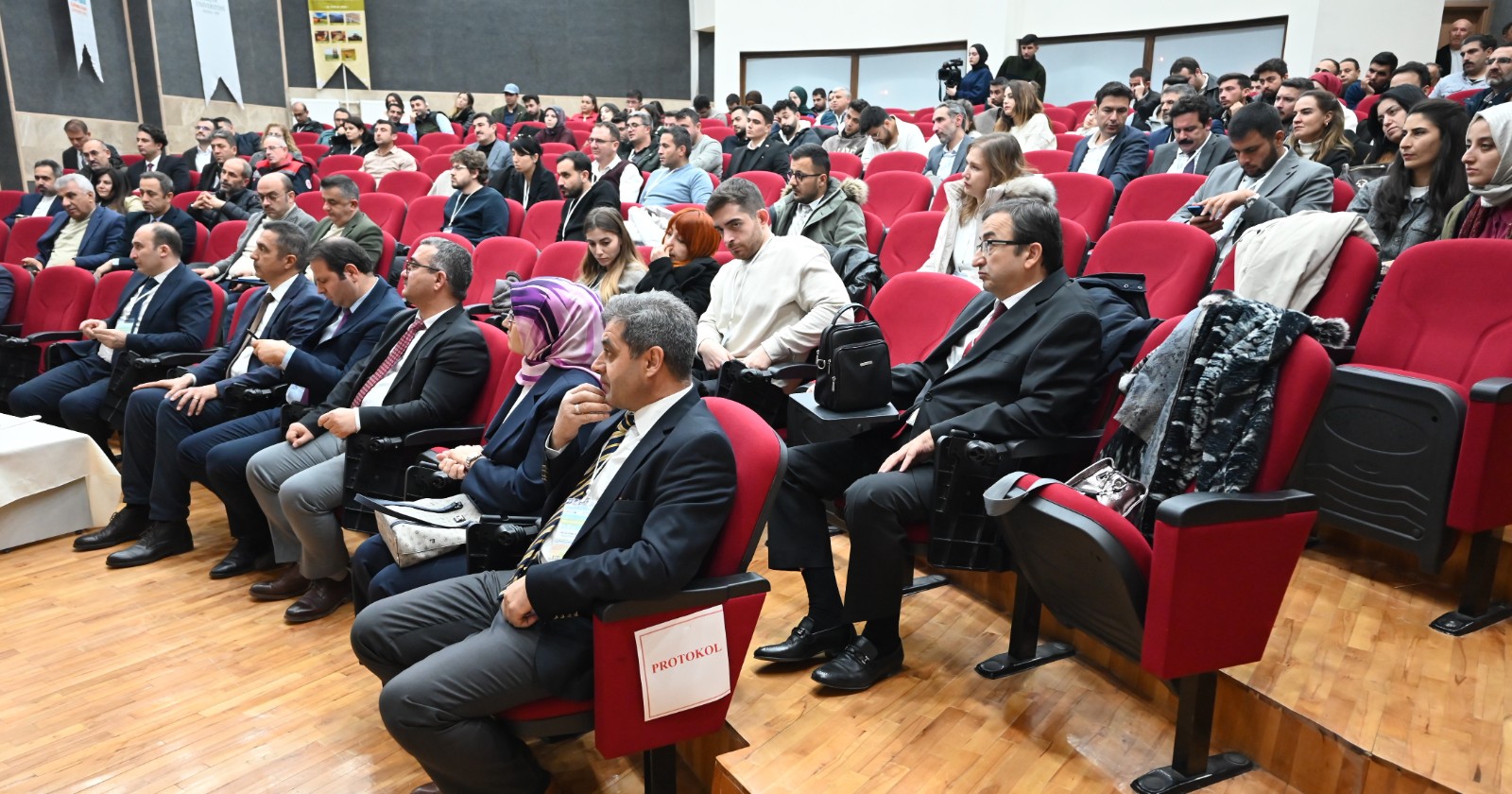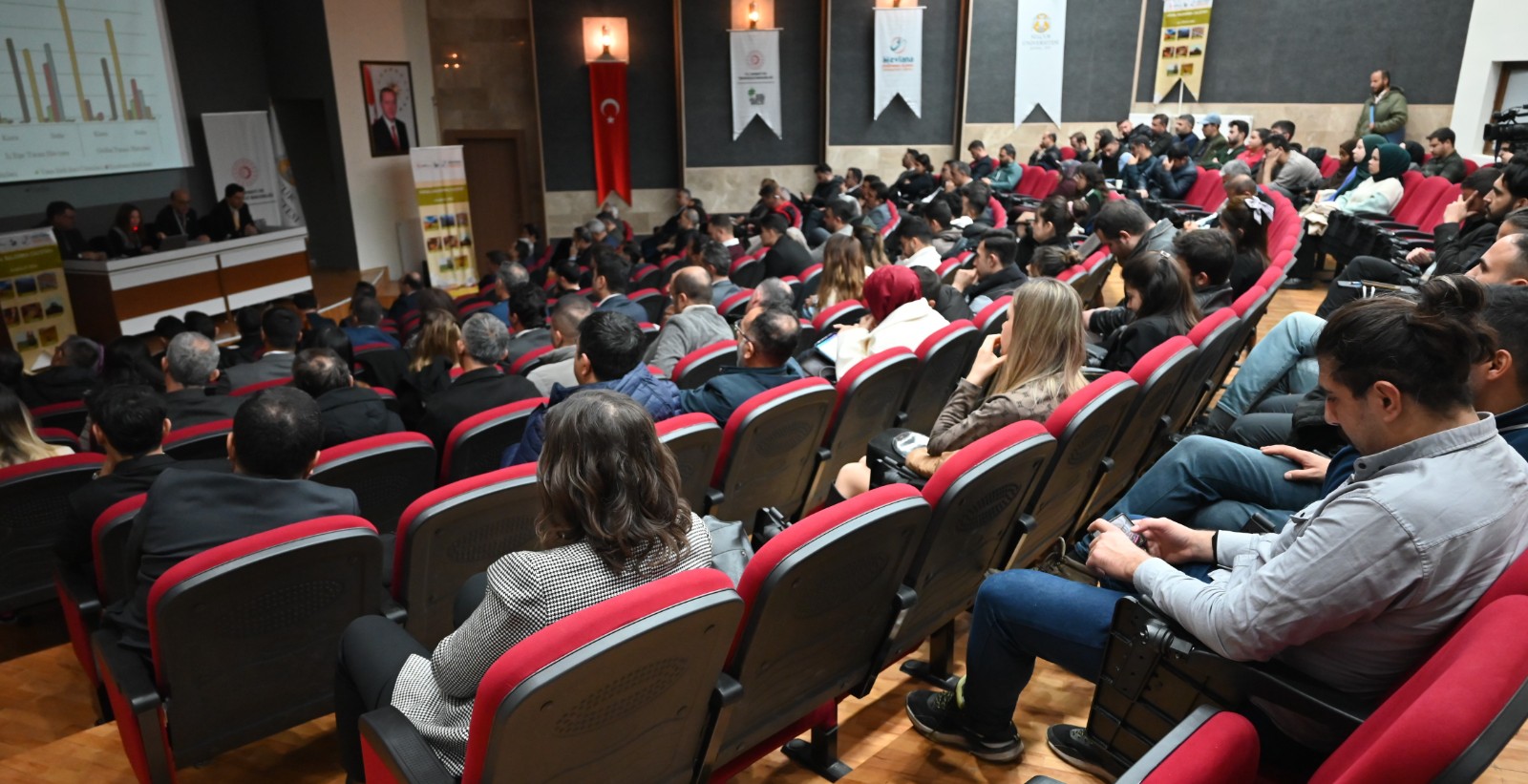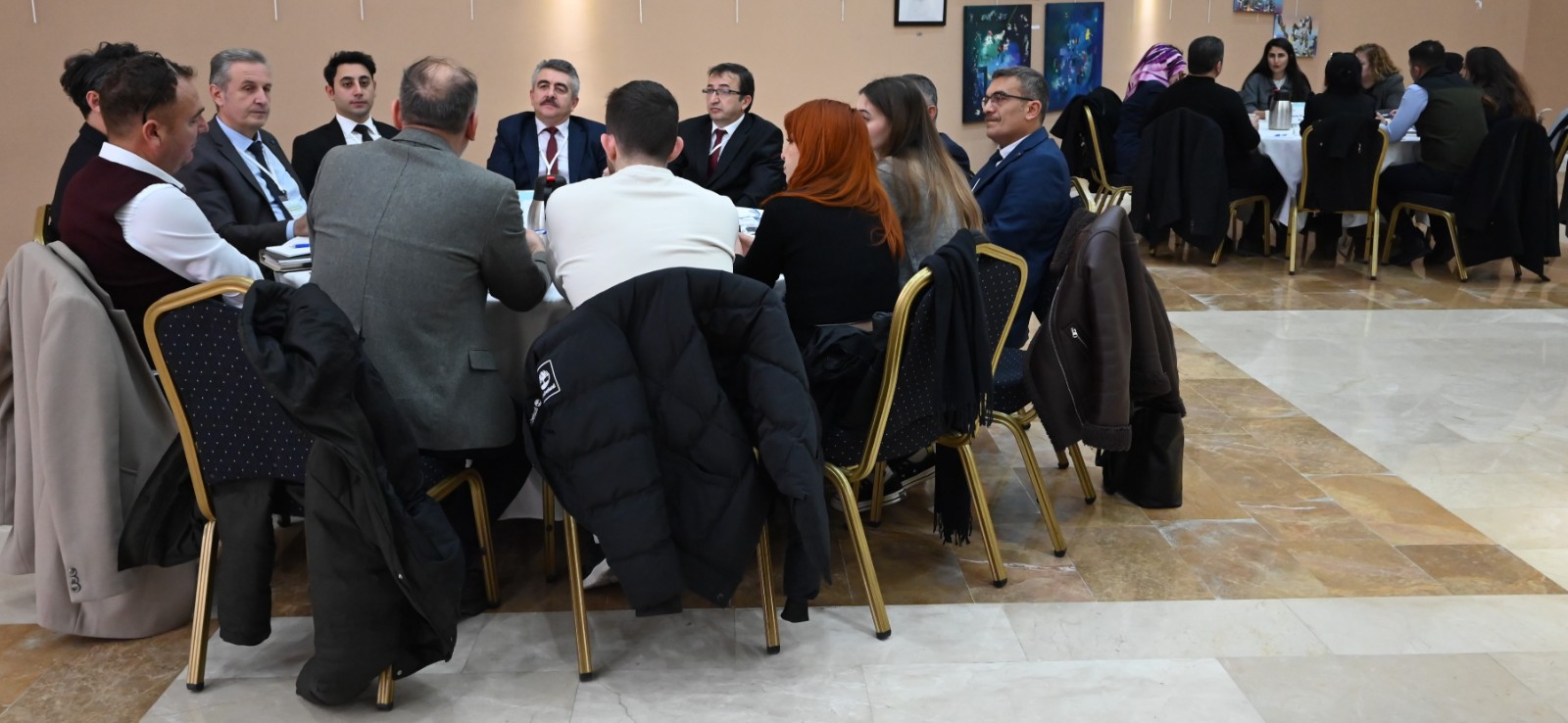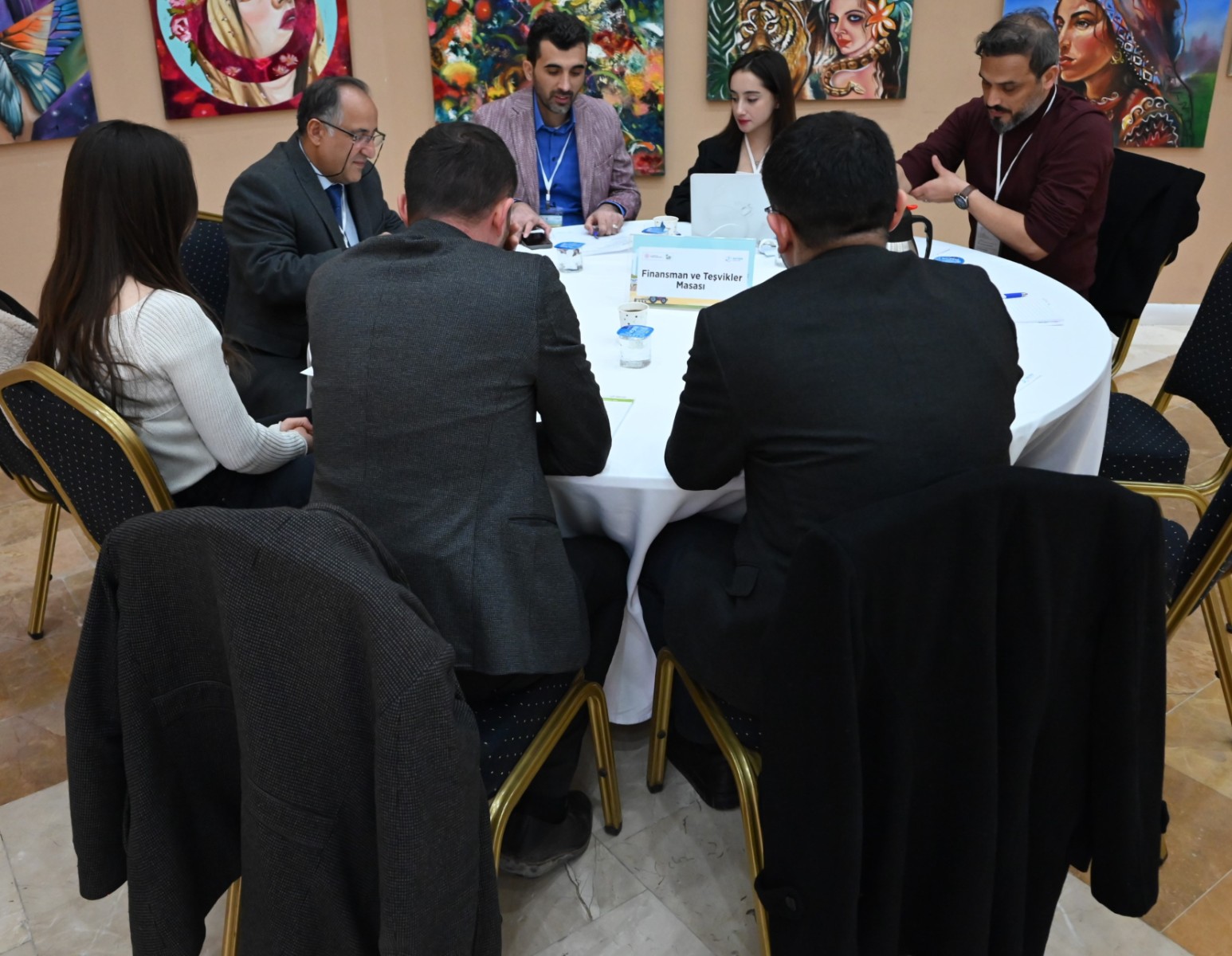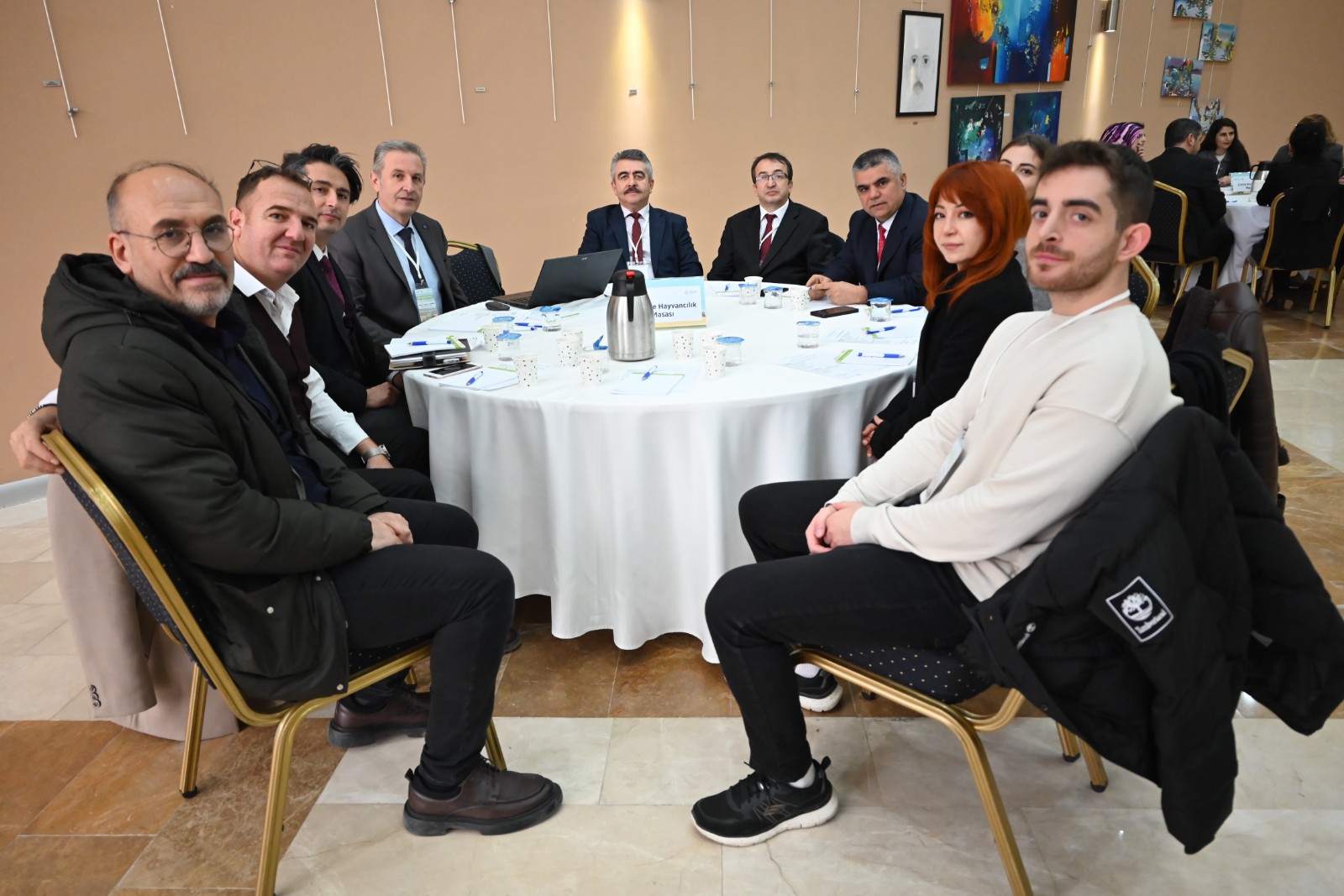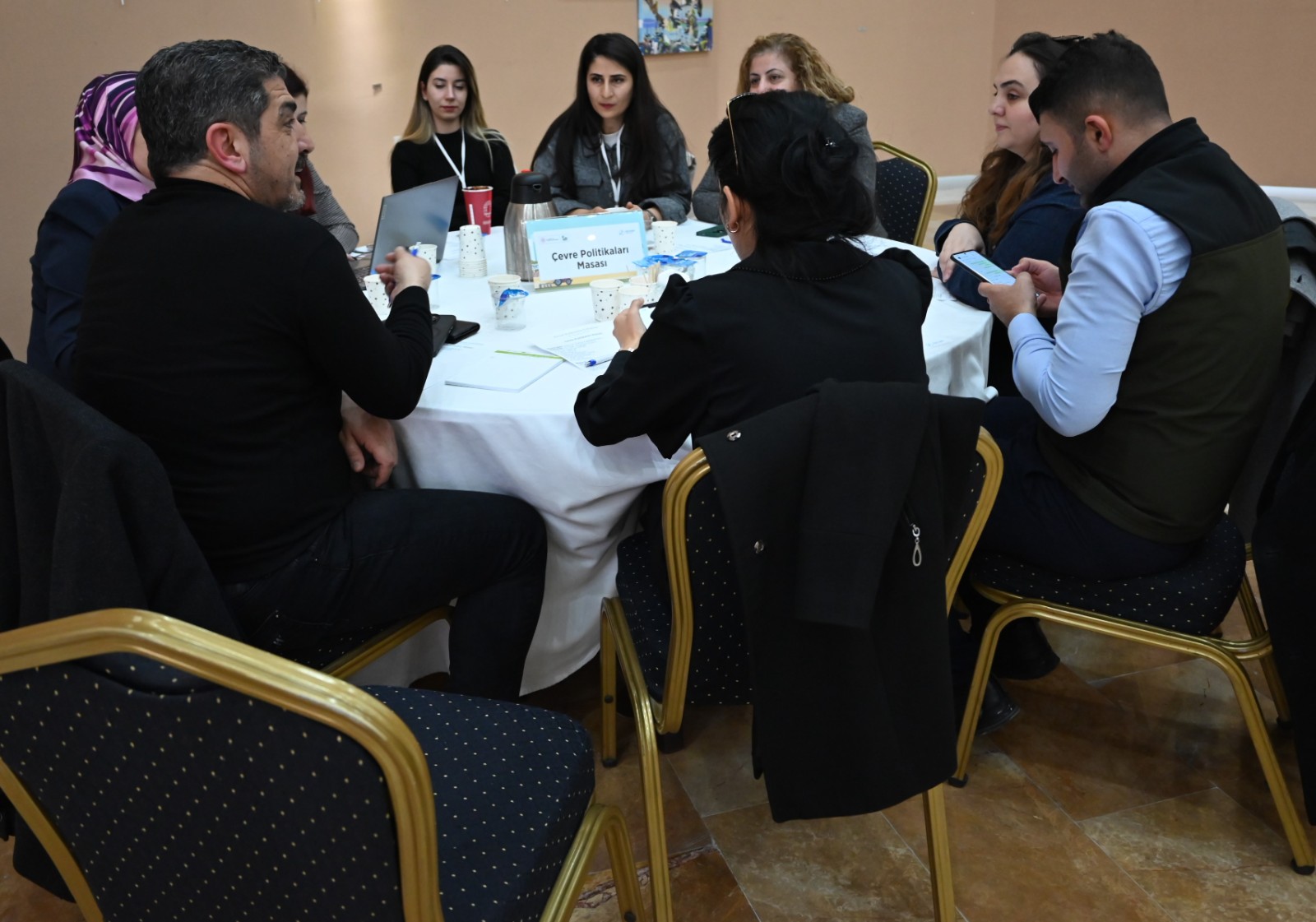New Roadmap for Konya's Rural Development to be Prepared Under MEVKA's Leadership
Mevlana Development Agency, operating in the Konya-Karaman Region, organized a Konya Rural Development Workshop in cooperation with Selçuk University Continuing Education, Application and Research Center.
The program, held at Selçuk University Museum Building, was attended by Selçuk University Vice Rector Prof. Dr. Zeki Bayramoğlu, Mevlana Development Agency Secretary General Dr. İhsan Bostancı, Konya Provincial Director of Agriculture and Forestry Duran Seçen, Agricultural and Rural Development Support Institution Konya Provincial Coordinator Yavuz Uysal, Agricultural and Rural Development Support Institution Karaman Provincial Coordinator Özgür Öztürk, Konya Soil Water and Combating Desertification Institute Director Cihan Uzun, Konya Plain Project Regional Development Administration Deputy President Kasım Akyol, representatives of public institutions and organizations, representatives of cooperatives, unions, chambers and commodity exchanges, faculty deans, sector stakeholders, and many guests.
Speaking at the opening of the program, Mevlana Development Agency Secretary General Dr. İhsan Bostancı said, “We see that the concept of rural development, which brings us together today and has a history older than the republican history in our country, has come to this day by undergoing many changes depending on the developments in the international development agenda. In today's conditions, where purely growth-oriented policy priorities have given way to integrated development pursuits encompassing the entire society and have found an agenda with the sustainable society approach, it is a universally accepted fact that rural development efforts have an importance beyond ensuring economic prosperity in rural areas. Although expectations are for a rapid increase in urbanization in today's world where borders have begun to disappear due to technological developments and economic concerns, and the World has become a global village, it is also clear that the population living in rural areas will always have a critical weight. Therefore, policies to be implemented in rural areas will continue to be the key to overall development for many countries. When we consider the issue specifically for our region from this perspective, we see that as a region with a large rural geography and a high rural population, we have a serious rural economy and human resource potential that can accelerate national development. What is important here is to ensure that this potential, possessed by both our country and our region, is evaluated by taking into account the constraints and needs of the rural sector, and that the resources to be allocated to rural development are mobilized in priority areas in a coordinated manner. At this point, instead of separating rural and urban areas with definite lines; it is of great importance to consider the concept of space in a continuous framework and to ensure rural and urban integration by adopting a multi-sectoral and multi-stakeholder approach not solely dependent on agriculture. This situation also brings with it the necessity of ensuring coordination and maintaining cooperation among all public and non-public actors in meeting the needs of rural areas and solving their problems. These policies we mentioned are discussed in detail in local and national action plans prepared by ministries and related institutions working in the field of rural development; however, they also hold an important place in our Regional Plan, which was prepared by our Agency with the contributions of our stakeholders in the Konya and Karaman Region to cover the years 2024-2028 and gained validity by being published in the official gazette on December 17, 2024, with the approval of our President. In our regional plan, in parallel with national policies, it has been stated that structural transformations to be carried out by taking the fundamental values and expectations of our nation as a basis to bring the minimum welfare level in the rural areas of our region closer to the national average, ensuring economic diversity in rural areas, developing human resources, improving social and physical infrastructure, and thus reducing inter-regional and intra-regional development disparities. Furthermore, it has been stated in the regional plan that problems such as unemployment, unbalanced income distribution, social incompatibility, inability to fully utilize natural resource potential, and migration in the rural areas of our region still maintain their importance, and in this respect, it is necessary to carry out studies to raise the basic quality of life in rural settlements and to minimize the constraints caused by spatial disadvantages. On the other hand, in a similar way to our country, in an environment where risks are increasing due to the aging of the population in addition to its decrease in rural settlements, and where significant demographic differences are observed between rural areas close to and far from cities, shifting suitable production activities carried out in organized industrial zones in cities to rural areas, ensuring production diversity with micro and medium-sized enterprises in areas such as energy, mining, and local products, taking into account the potentials of rural areas, especially in labor-intensive sectors, will directly contribute to increasing employment in rural areas, revitalizing life, especially in convergence districts, and reducing migration. In this direction, as Mevlana Development Agency, I would like to state once again that we are ready to do our best in light of our regional plan and the concrete suggestions that will emerge from today's workshop to increase the welfare level of the rural areas of our region and reduce the intra-regional development level. As an Agency, within the scope of various financial and technical support programs carried out to increase welfare levels in rural areas, especially in relatively underdeveloped districts, to develop institutional and local capacity, to prevent population losses, to revitalize rural life, and to reduce intra-regional development disparities, nearly 215 Million TL support has been provided to approximately 50 projects to date, mobilizing an investment of 300 Million TL in the region with beneficiary co-financing. In 2024, our Agency underwent a new structuring, and one of the units we established within this structuring was the rural development and tourism unit. We will now carry out our work for the rural areas of our region in a more focused manner under the coordination of this unit. On this occasion, I would like to state that our rural development technical support program, carried out under the auspices of our rural development and tourism unit, is currently open, and we expect project applications from you, our esteemed stakeholders. With this workshop organized by our Agency in cooperation with Selçuk University Continuing Education, Application and Research Center, we aimed to bring together stakeholders related to the subject, to put forward new solution proposals with a common mind for the problems experienced by our region in the field of rural development, to discuss new areas of cooperation among stakeholders, and to develop new ideas and new projects. Within the scope of our workshop, in the first stage, in the panel part to be chaired by Sel&çuk University Vice Rector Prof. Dr. Zeki Bayramoğlu; issues such as Agriculture and Rural Development; Konya Province Example, Financing of Rural Development, and Organization Problems and Solution Proposals in Rural Areas will be discussed in detail, and then issues such as agriculture and animal husbandry, environmental policies, infrastructure and transportation, education and employment, cooperation and organization with local businesses, financing and incentives, management strategies, rural tourism, and natural resources will be discussed in focus group meetings from the perspective of the region, and a vision for the rural development of our region will be created, in a sense, a roadmap will be established. With these feelings and thoughts; I thank başta Selçuk University Continuing Education, Application and Research Center Director Prof. Dr. Erkan Akgöz, our panelists, all our stakeholders, and participants for their valuable cooperation in organizing the workshop, and I hope that our workshop will bring beneficial results for our region and our country.”
Then, Selçuk University Vice Rector Prof. Dr. Zeki Bayramoğlu, who came to the podium, stated that Selçuk University is among the most important universities contributing to the development of the region and the country, and that the Faculty of Agriculture and Faculty of Veterinary Medicine within the university have carried out valuable studies on rural development, saying, “As of today, when we examine the world agricultural sector, as someone closely interested in academic parameters, I would like to state that the Turkish agricultural sector has made significant progress, shown development, and achieved great success in terms of both per-unit productivity and sectoral organization with its Ministry organizations, NGOs, and farmers.”
After the opening speeches, in the panel part of the workshop chaired by Selçuk University Vice Rector Prof. Dr. Zeki Bayramoğlu; “Agriculture and Rural Development - Konya Province Example” by Selçuk University Faculty Member Prof. Dr. Cennet Oğuz, “Financing of Rural Development” by United Nations International Fund for Agricultural Development (IFAD) Country Program Officer Assoc. Prof. Dr. Taylan Kıymaz, and “Organization Problems and Solution Proposals in Rural Areas” by Ministry of Agriculture and Forestry General Directorate of Agricultural Reform Head of Organization Department Fatih Kara were discussed in detail.
After the panel sessions, focus group meetings were held where issues such as agriculture and animal husbandry, environmental policies, infrastructure and transportation, education and employment, cooperation and organization with local businesses, financing and incentives, management strategies, rural tourism, and natural resources were discussed from the perspective of rural development by sector stakeholders, representatives of public institutions and organizations, and academicians.
It is aimed that the outputs obtained from the workshop organized by Mevlana Development Agency will be reported in a short time, the problems experienced by the region in the field of rural development will be presented with solution proposals, and a new roadmap for the rural development of Konya will be determined.


